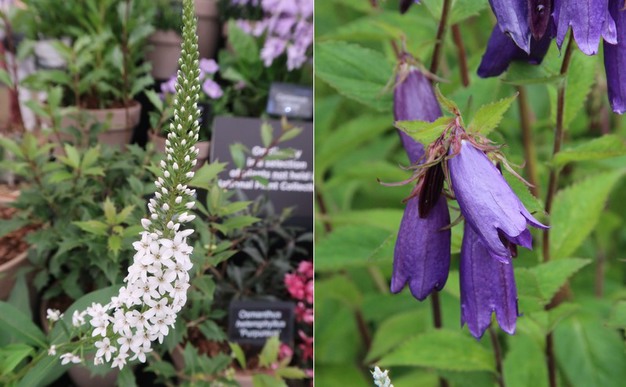This July, horticultural conservation charity Plant Heritage is launching its annual Missing Genera 2023 campaign at RHS Hampton Court Palace Garden Festival in a bid to save 12 plant groups that could otherwise be at risk of disappearing from cultivation.
The charity’s annual campaign, which is now in its seventh year, calls for volunteers with a passion for plants or a love of gardening to consider starting a National Plant Collection® and thus saving one of the plant groups on this year’s Missing Genera list.

This year the Missing Genera 2023* focuses on pollinator-friendly plant groups. Many of the 12 plant groups listed are magnets for a huge variety of pollinators, from bees and butterflies to moths and other insects. This year’s list includes brightly colored Echinacea which has increased in popularity thanks to recent prairie-style planting, Osmanthus, which boasts nectar-rich jasmine-like flowers come spring, and Gaura (recently reclassified as Oenothera (G)), which is known as for attracting bees.
In addition to launching the Missing Genera campaign, Plant Heritage’s stand (no. PH 123) at RHS Hampton Court Palace Garden Festival (4-9 July) will also highlight the charity’s 45th anniversary, which is being celebrated throughout 2023 and will focus on how the National Plant Collections have evolved through the decades, from the 1980s to present day. The charity will also showcase the recent milestone of accrediting its 700th National Plant Collection at the world-renowned show too.
Gill Groombridge, Business Manager at Plant Heritage, says: “We’re thrilled that in our 45th anniversary year, we’ve accredited 700 National Plant Collections, but not every plant group has someone to care for and conserve them. This is why every year, we identify plants that could be at risk of being lost from our gardens without help. Many of our National Plant Collections are held in homes or in small conservatories, so you don’t necessarily need lots of space in order to help. If you love gardening and are interested in helping us conserve plants, then we’d love to hear from you.”
“Since the Missing Genera began in 2016, 12 new National Plant Collections have been set up, which means the future for these plant groups is now significantly brighter. There are some beautiful and easy-to-care-for plants on this year’s list, so we really hope they will find their forever home soon.”
National Plant Collections are found all over the UK, Ireland, and the Channel Islands, from the far reaches of Scotland to the Cornish coast. Together these ‘living libraries’ contain an estimated 95,000 garden plants. Some are created and cared for by passionate individuals or specialist plant nurseries, while others are held by famous botanic gardens, such as Royal Botanic Gardens Kew.
Almost five decades after the first National Plant Collections were accredited between 1980-1982, the conservation scheme is still going strong, with many of these inaugural collections still thriving today. These, and the newer collections that are accredited every season, all play a vital role in Plant Heritage’s wider plant conservation work and are crucial to combating the effects of climate change.

For more information:
Plant Heritage
Tel.: 01483 447540
plantheritage.org
